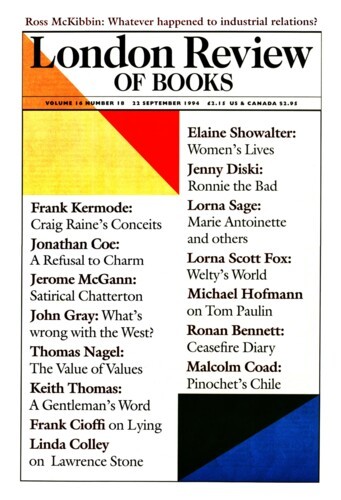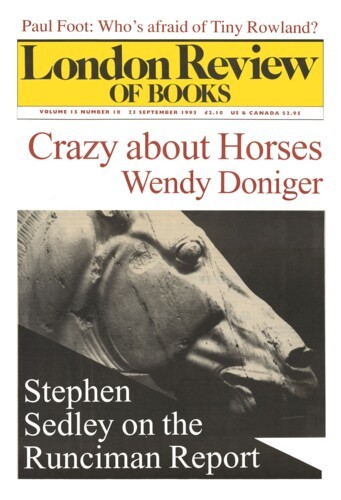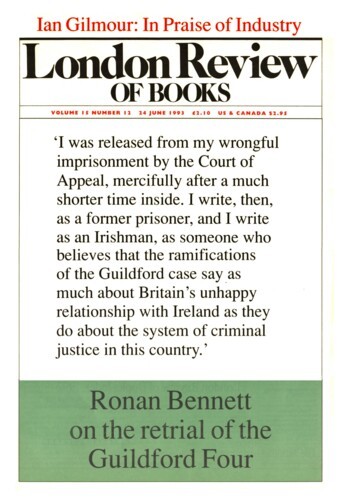In October 1989 I was in Cuenca in southern Ecuador. Cuenca is a sleepy town, Ecuador – for reasons partly to do with climate and partly with the military’s intermittent but pointed interventions in political and economic life – a sleepy country. Once, during a presidential election, the country briefly came out of its quiescence when one of the candidates exhibited worrying signs of sun-stroke. In a television interview he began to boast about his many personal achievements; by the time he got properly into his stride he was insisting he had a better degree than his opponent, a bigger house, a more beautiful wife, taller children and – definitive proof of his fitness to govern – thicker semen. This was too much, even for Ecuadorians long used to the macho exaggerations of the Latin American stump. The electorate woke up, laughed themselves silly for a week and voted in the candidate of the inferior semen. But this was a rare high point: as a rule, it is a quiet country, a fact reflected in the headline of a newspaper I picked up in Cuenca. For reasons best known to himself, the editor had decided to splash with a story headlined, ‘Nothing Unusual Happened Today’. I remember enjoying the story, though I cannot now recall any of the detail. However, another item caught my attention and has stayed with me since: an agency story datelined Londres to the effect that the Court of Appeal had suddenly and unexpectedly freed the three men and one woman known in Britain as the Guildford Four.’
Few commended Lord Lane’s handling of the Birmingham Six case, and no one would say he displayed any obvious sympathy for those before him, or an inclination to believe their allegations of police malpractice. But now Lane, the country’s senior judge, was admitting that a gross wrong had been perpetrated; and he was saying that the policemen responsible should be punished.





